Patrick Carney just wants to get to the point. “When it came to some of the business stuff, we were kind of blindly trusting stuff,” he says. “Which was against our better judgment, I suppose. But, it’s hard not to trust.”
Drummer for rock juggernaut The Black Keys, Carney’s arms, much like they appear onstage, are moving around wildly to properly articulate just how upset he and his bandmate, guitarist Dan Auerbach, still are about the whole thing.
“I think we’re one tour away from being over it,” Carney says. “We’re feeling centered and grounded again.”
Videos by American Songwriter
Sitting at a kitchen table in the depths of the Keys’ legendary Easy Eye Sound studio in Nashville, the duo is rehashing—more so making sense of—just what the hell happened that led to the demise of their 2024 tour for the album Ohio Players.
To preface, leading up to the two-month national arena tour behind Ohio Players, the Keys found themselves placed by their management team in rather enormous venues. Thus, when ticket sales fell way under management expectations, the entire American tour was abruptly canned, ultimately leaving the Keys kind of eating crow.
“We were giving people the benefit of the doubt,” Carney says. “It’s hard not to trust certain people when they have such a reputation for being so successful. This whole thing caused us to step back. What actually do the fans want to see, and what’s good for us?”
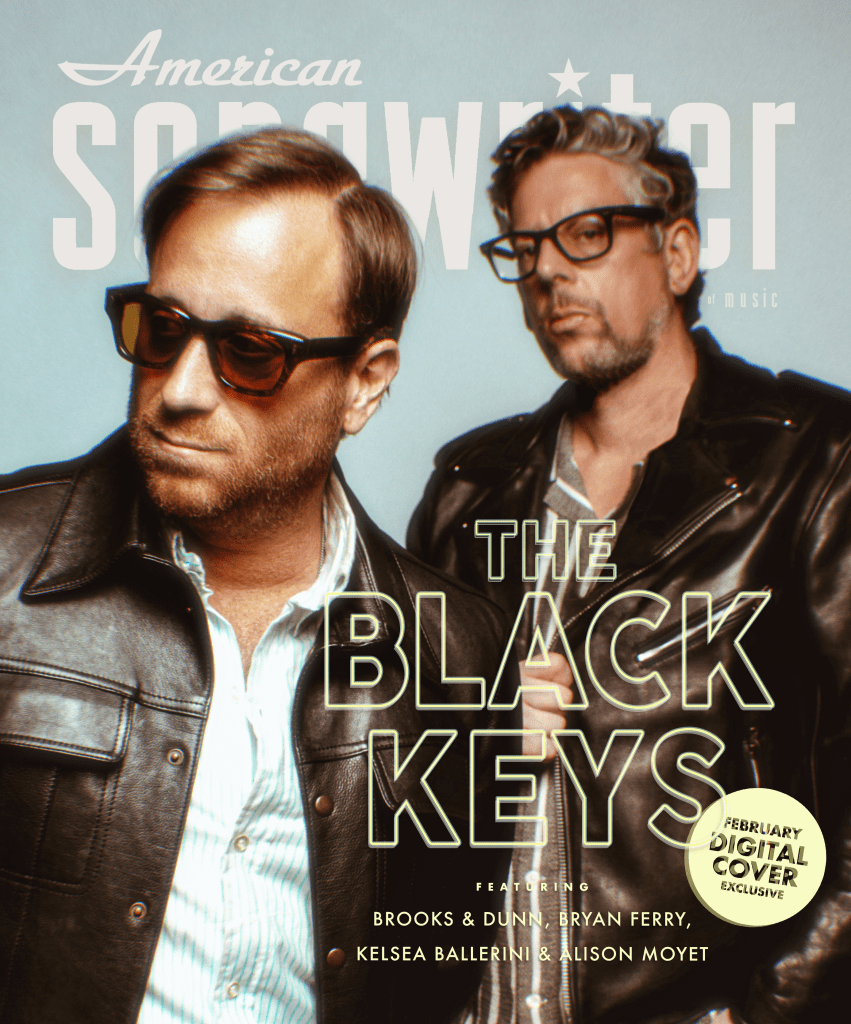
From there, the Keys split with their management. After that, Auerbach and Carney decided to recalibrate not only the inner workings of one of the most popular and innovative rock acts of the last 25 years but also reconfigure just what the vision for The Black Keys is and will be moving forward.
“We were very proud of that album,” Carney says of Ohio Players. “But, a series of unfortunate events happened, which resulted in us canceling our tour. And it left us kind of…”
“…in limbo,” Auerbach adds. “We couldn’t market the album that we’d worked so hard on. So, we had to get back into our zone, making something we were proud of so that we could try it again.”
And what resulted is the Keys’ upcoming album, No Rain, No Flowers. A chance to “go back in the studio and try to blow some steam off,” No Rain, No Flowers, the band’s 13th studio album, is typical Black Keys in its approach, which is an offering that: A.) Sounds like The Black Keys, but, B.) Also feels like a new musical avenue for them to duck down.
“I mean, that’s what “No Rain No Flowers” is all about,” Auerbach says of one of the tracks. “I think it’s our ‘trying to get over it’ type song. We’re not over it, but that’s where we know we need to be — we know we need to get there.”
“It’s our mantra,” Carney chuckles
Whereas Ohio Players was melodically more in your face with heavier rhythms and lyrical swagger in its sonic prowess, the new album finds the Keys in more of a relaxed and reflective mood, this realm of letting go of all that ails oneself — a freewheelin’ ethos of “It is what it is. It was what it was. It ain’t what it ain’t.”
“[It] was pretty scary what happened to us [last year],” Carney says. “But, the second scariest thing is [that] we could easily get complacent and just make a ton of money without having to do a bunch of work, without having to throw passion into it, without having to throw creativity into it.”
But, instead, the Keys took a different professional route, one where they’re using these latest hardships as rocket fuel for the artistic fire within — the continued mindset of Auerbach and Carney being one of this constant evolution of sound, scope, and self.
Fall outta bed, splash my face/Try to keep my mind in the right place, Auerbach’s voice bubbles up on lead single “The Night Before.” I’ve been high, baby, I’ve been low/I’m seeing stars everywhere I go.
Part of that constant evolution is this deep urge to try new things whenever the Keys hunker down in the studio. This go-round, it was to try their hand at co-writing sessions, something the band hadn’t entertained before. Soon, legendary singer-songwriter Rick Nowels was called up.
“We’ve been collaborating with some of our favorite musicians, [but] we’ve never really collaborated with a songwriter,” Carney says. “[We] said this would be a good place to start. And so, we reached out to Rick. Neither one of us had ever met him [and] he’d never been to Nashville.”
The sessions with Nowels proved not only bountiful but “eye-opening” for the Keys, this new platform of creative potential and musical purpose.
“I knew we’d like it if we got in the room with the right people,” Auerbach says of Nowels. “It doesn’t always work, but when you get in the room with the right person and you have that connection, it’s where everything gets better — they take what’s great about you and help you do things you wouldn’t necessarily think of.”
Auerbach admits “it would’ve been impossible” for the Keys to ever even consider or attempt the co-writing process when they were a young band starting out in the early 2000s.
“[We were] just too insecure and stupid and didn’t know about anything,” Auerbach says of those early days.
And yet, on the flip side, it’s being insecure and stupid at the beginning of a band’s career that makes an act stubborn enough to push through certain obstacles, where most others would give up and simply walk away from their hopes and dreams before anything even got off the ground.
[RELATED: Watch: ‘The Voice’ Can’t Get Enough of The Black Keys’ Electrifying Performance of “Beautiful People (Stay High)”]
“Oh, absolutely—that’s the arc of a band,” Carney acknowledges. “That’s why bands break up because one person and not the other people get to the point of understanding what you have [to do] to grow. And then that’s where the tension starts. We’ve always been on the same page.”
Roll the clock back to 2001, when The Black Keys formed in Akron, Ohio, the hometown of both Auerbach and Carney. Childhood cronies, the two teenage Midwestern music freaks had an unrelenting, sincere affinity for the nitty gritty blues and murky rock of bygone eras, most notably the sounds of late blues legends Junior Kimbrough and R.L. Burnside.
“It’s funny ‘cause we were like 18 years old, and we were idolizing R.L. Burnside and Junior Kimbrough, and they were like 65, 70 [years old],” Auerbach says. “They were our rock stars.”
“[They were] clearly self-taught,” Carney adds. “There’s an authenticity that’s just palpable when you put on most of that North Mississippi stuff.”
By the time Auerbach and Carney hit college, there was an intrinsic, deeply personal sense of pursuing a career as a musician. Dropping out of school, the duo took the leap, formed The Black Keys, and started the long journey to somewhere, anywhere—two friends now in search of the sound, come hell or high water.
“I was a third-year freshman in college with eight years of remedial math left to go. There was no ‘Plan B.’ It was either weed-whacking or hitting the drums,” Carney says. “We were obsessed with music. We were glued to discovering music and listening to everything we could get our hands on. It was an all-consuming passion, which it still is.”
At that time, The Black Keys felt they could do the damn thing, you know? They saw friends in local hardcore bands hit the road and tour the country on a bare-bone budget, seemingly finding creative fulfillment on their own terms and in their own time. They also took career cues from indie-rock acts they admired, like Pavement, The Jon Spencer Blues Explosion, and Silver Jews.
“They would all go and make their records,” Carney says. “And so, two broke 22-year-old kids in Akron were making decisions about signing to [Fat Possum Records] from Mississippi because we idolized some these [blues] musicians [on their roster], rather than sit out and wait for the ‘big record contract.’”

Steadily putting out independent releases, the Keys also crisscrossed America on grueling, ride-or-die touring schedules. Like the wanderings of young Billy in the “Family Circus” cartoon strips, the Keys would play any stage on any night at any venue that would have them.
Auerbach vividly remembers those all-or-nothing treks from Akron to New York City, only to play a small gig for peanuts, just enough bread to justify the fuel and gas station snacks (they also avoided toll roads to save money).
“We’d drive nine hours, [do a show], then drive back,” Auerbach says.
“We put in the hours, that’s for sure,” Carney adds. “We’re obsessed with music, but we’ve chosen the hardest way to do it.”
[RELATED: The Black Keys Announce New Tour Following 2024 Debacle: “Sh*t Happens”]
Skip ahead a quarter-century later. And there Dan Auerbach and Patrick Carney remain, still together, in their own personal state-of-the-art recording studio in the heart of Nashville, surrounded by a murderers’ row lineup of instruments, stacks of vinyl records, and a handful of Grammys awards.
“Every year, the bond we have gets tighter,” Auerbach says. “You kind of realize how special the relationship is, how unique it is, and how we’re able to just instantly lock in—I definitely don’t take it for granted.”
“We’ve been through a lot. We can get through a lot,” Carney adds. “It’s surreal, ‘cause it doesn’t feel like 25 years, and I feel like we have more fun now.”
Not to mention a highly-anticipated national tour that’ll soon be underway in celebration of the release of No Rain, No Flowers.
“We’re actually able to enjoy ourselves in a way that we never were [before],” Auerbach says. “We’re really looking forward to playing shows and making more music.”
When asked about what the last 25 years—the culmination of their vast experiences, onstage and off—have taught The Black Keys about what it means to be a human being in the grand scheme of things, Carney pauses for a moment before answering.
“Everybody has a hard time; there’s always a struggle, and that’s why people like us gravitate to this art,” Carney says. “There’s something transformative about music, that on your worst day, you can put on even the saddest song, and somehow it’s uplifting. You feel heard. You feel it resonates. It’s a magical thing.”
Photos by Larry Niehues
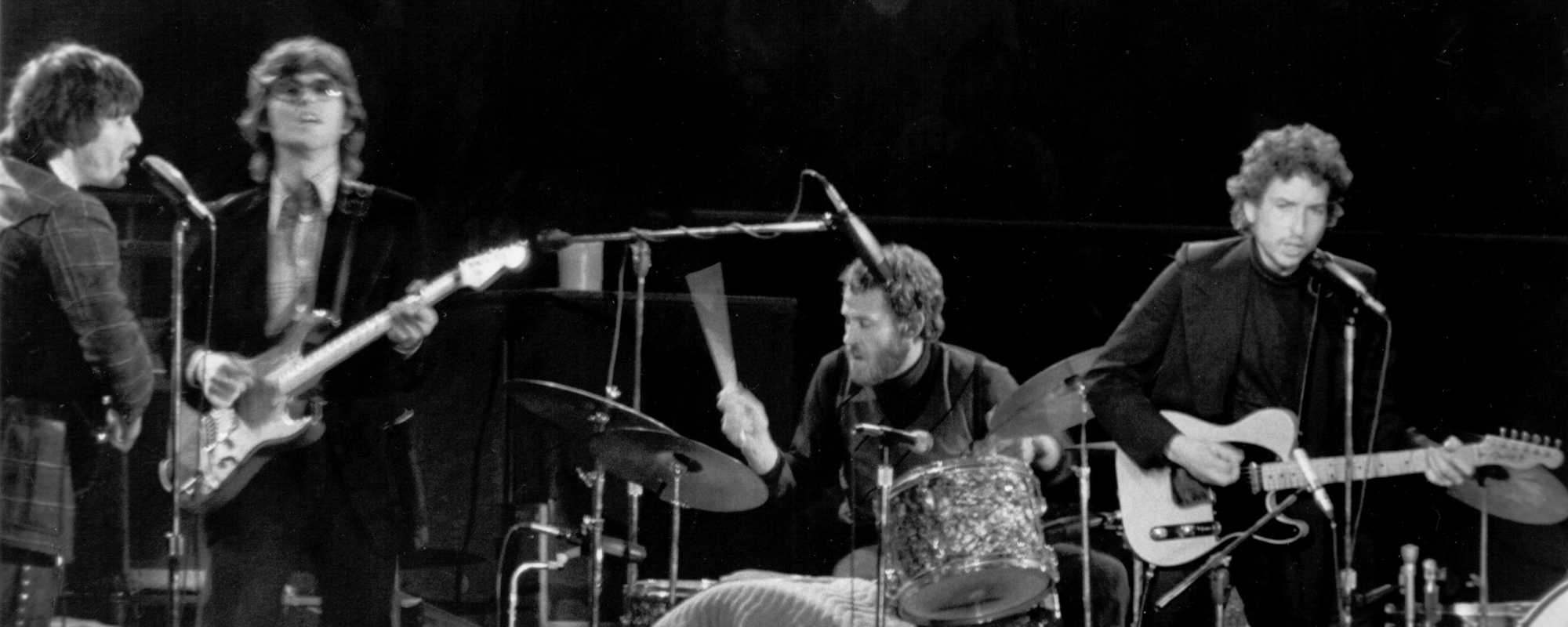





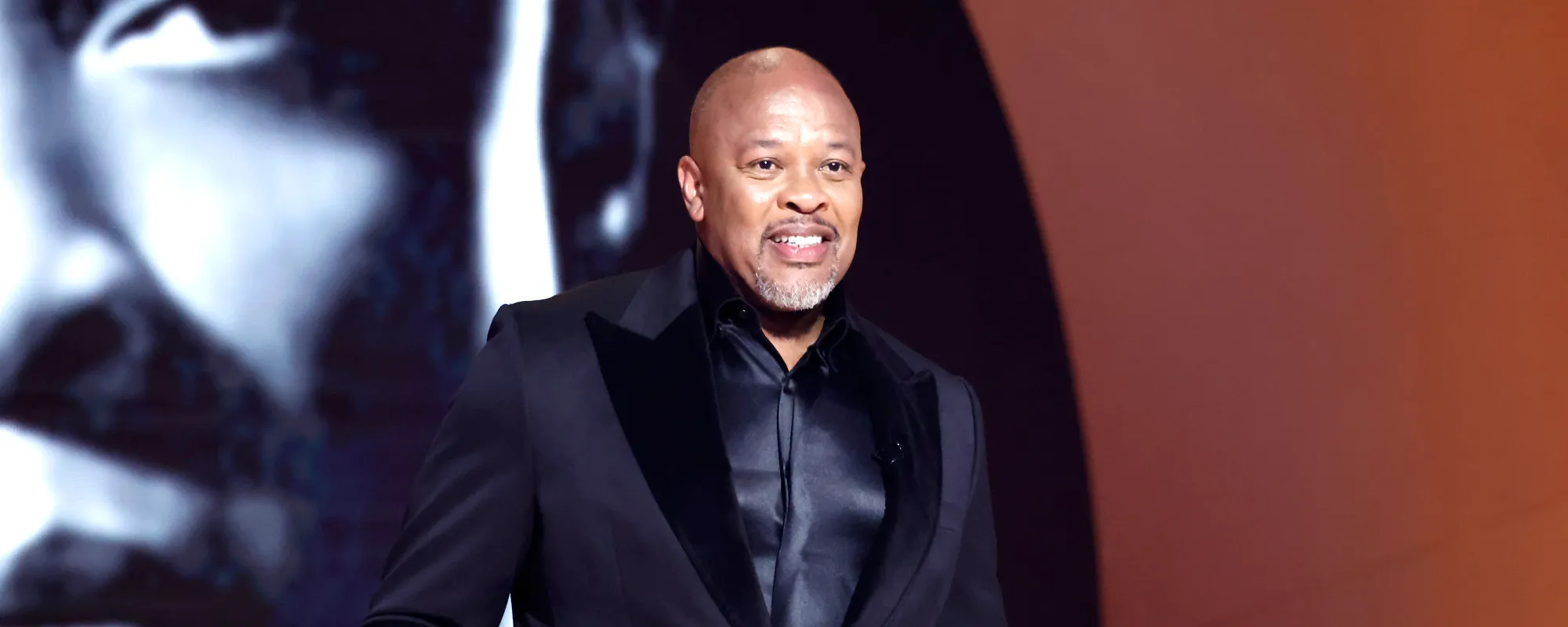
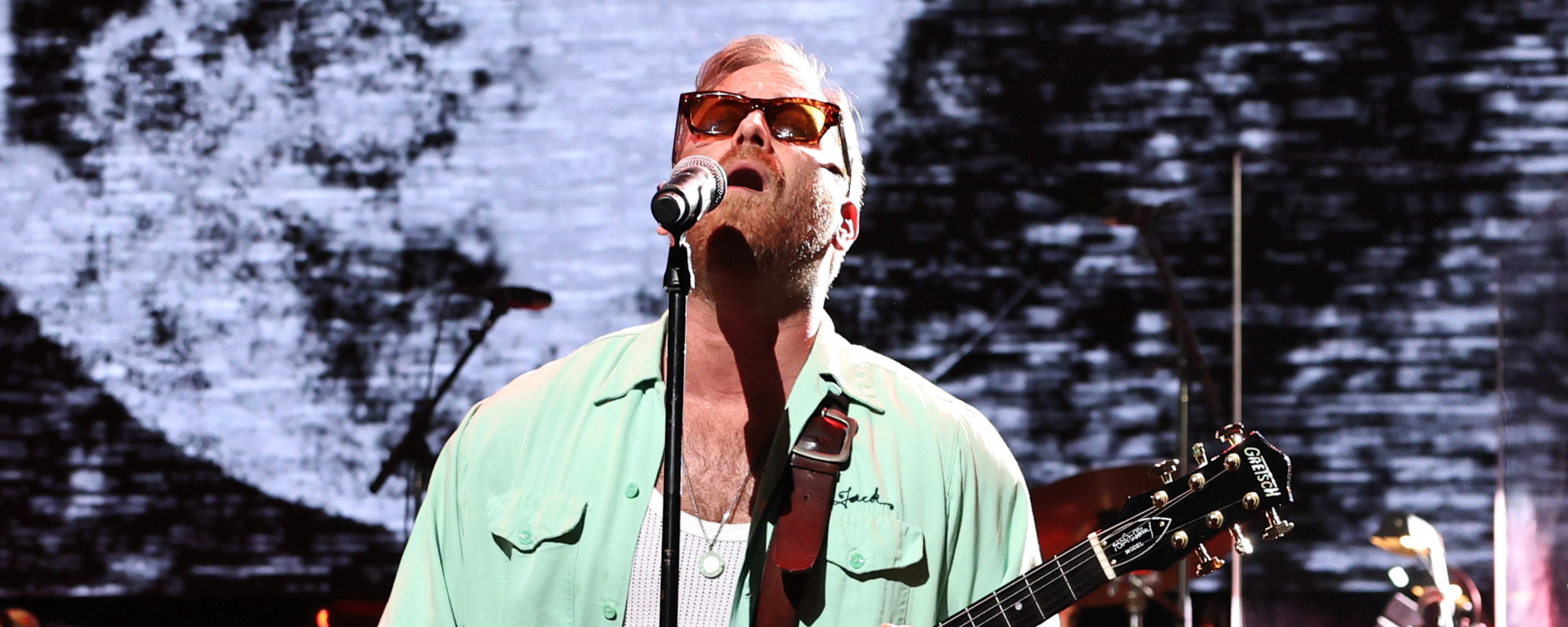


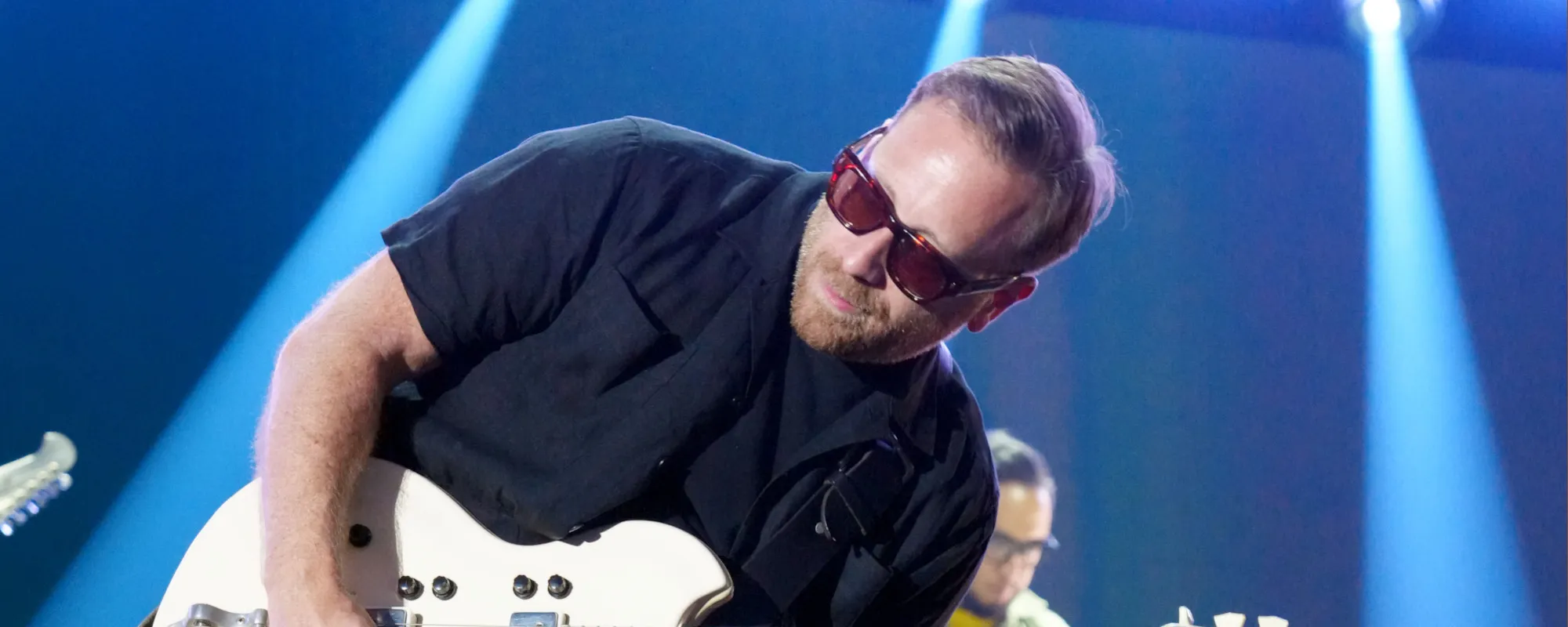
Leave a Reply
Only members can comment. Become a member. Already a member? Log in.